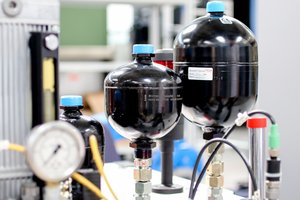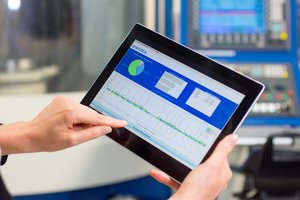Department Sustainable Production
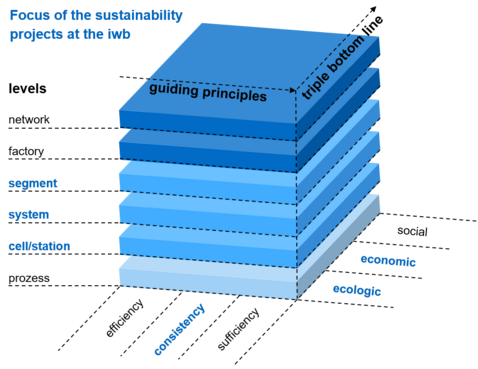
The Sustainable Production Department serves as a cross-thematic and interdisciplinary pooling of competencies in the field of sustainability in production. We understand sustainable production as the creation of goods and services using processes and systems that do not cause negative environmental impacts, are energy and resource efficient, economically profitable and compatible for employees, the community and consumers. In doing so, we look at different aspects of sustainability from the perspective of assembly technology, production management and manufacturing technology in order to ensure the competitiveness of manufacturing companies.
Contact for questions about the research focus areas: Daniel Schneider (Head of research field)
Main Competences of the Research Field
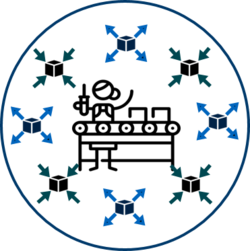
Circular Economy:
We research methods that improve the introduction and use of industrial circular economy in companies. This involves investigating how existing resources can be used for assembly so that they can also be used to carry out remanufacturing process steps such as disassembly or reassembly. For this purpose, both knowledge-based approaches and simulations are used to map the systems. Furthermore, approaches for remanufacturing-oriented product evaluation are being further developed.
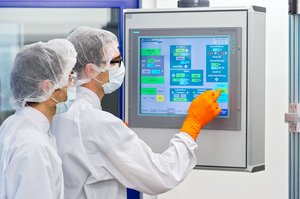
Energy-flexible control of production systems:
We are researching how to adapt production plants to a renewable energy supply. To this end, we are investigating, for example, methods of using storage in machine tools to be able to respond to changes in the energy market at short notice. Networking the machines is the decisive key technology for this.
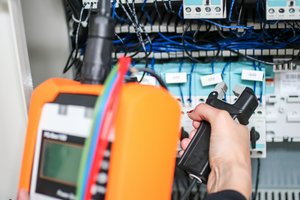
Integration of renewable energies:
We are researching ways of integrating renewable, decentralized energy generation technologies to enable manufacturing companies to be temporarily independent of electricity price policy decisions and volatile market prices. The advancing development of small-scale power plants is leading to a variety of grid-parity technologies, further increasing the motivation for distributed generation. Based on the company-specific goals, an approach is needed to analyze energy consumers of the production system, to select and size generation technologies based on these, and to identify suitable operating strategies for the production assets.

Data-based investigation of production processes:
We are researching data mining or process mining-based approaches that can be used to identify various potentials for increasing sustainability in production. In addition to approaches for the data-based investigation of value streams with regard to resource and energy efficiency, we are also researching data-based approaches for enabling hybrid manufacturing-remanufacturing processes.
Contribution to the Sustainable Development Goals
The focus of our research is aligned with the UN's Sustainable Development Goals (SDG) 7, 9 and 12 (https://sustainabledevelopment.un.org/sdgs).
[SDG 7] With our research we want to enable the use of renewable energies in production and improve the handling of energy as a resource in producing companies.
[SDG 9] With our research, we want to enable manufacturing companies to retrofit their industrial processes and technologies to make them more sustainable, clean and environmentally friendly.
[SDG 12] With our research, we want to encourage companies to make value chains and value streams more sustainable by consuming as few resources as possible and, at best, only using them.
- GROB cutting machine tool for analyzing the energy requirements of production facilities.
- Energy flexibility demonstrator, with the help of a hydraulic power unit, it can be demonstrated how aggregates of the production infrastructure can contribute to load management within manufacturing companies.
- GaBi - GaBi (Holistic Balance Sheet) from PE International is one of the leading software solutions for the life-cycle-oriented assessment of products and services and is used in particular for creating life cycle assessments.
- Tecnomatix Plant Simulation is used to map and optimize complex production and logistics processes in a computer model.
